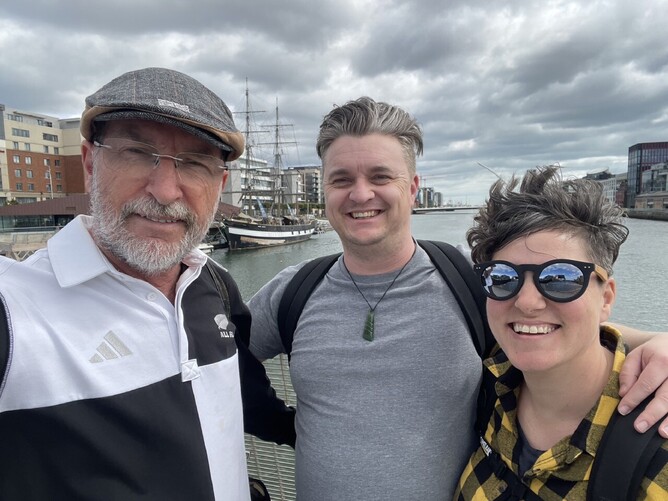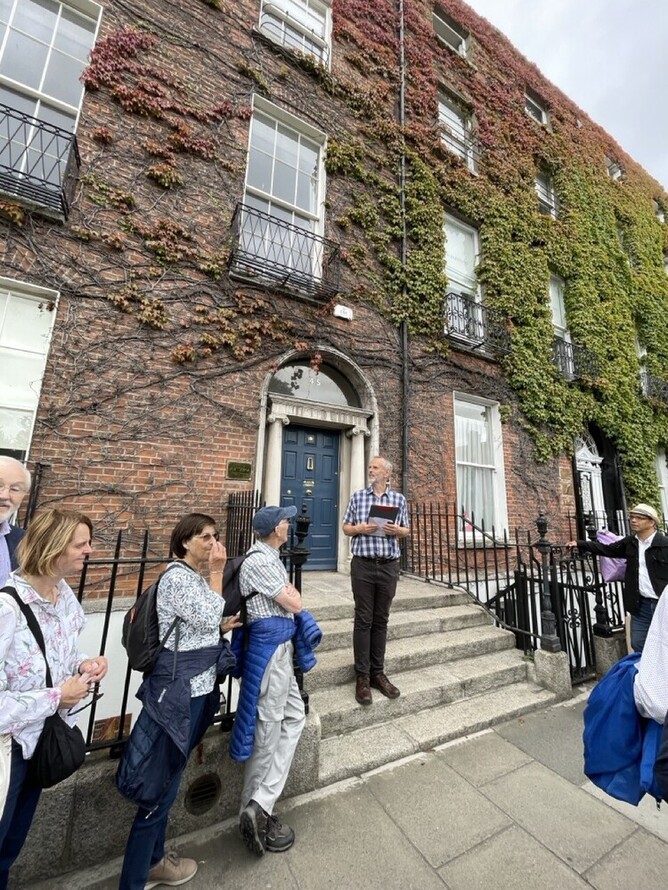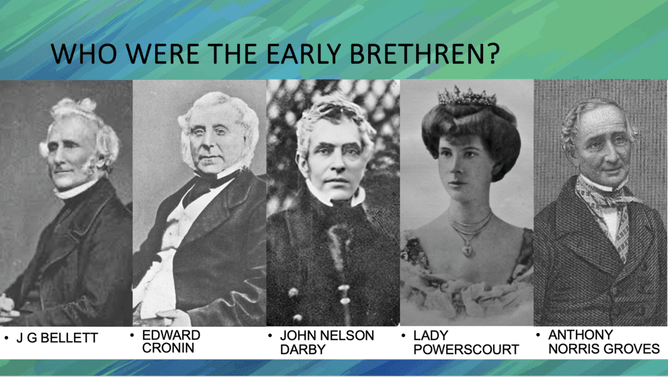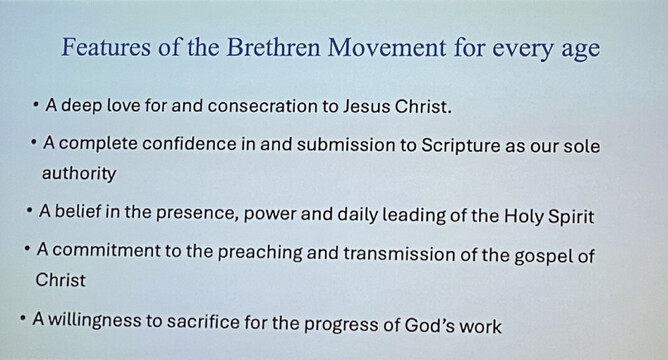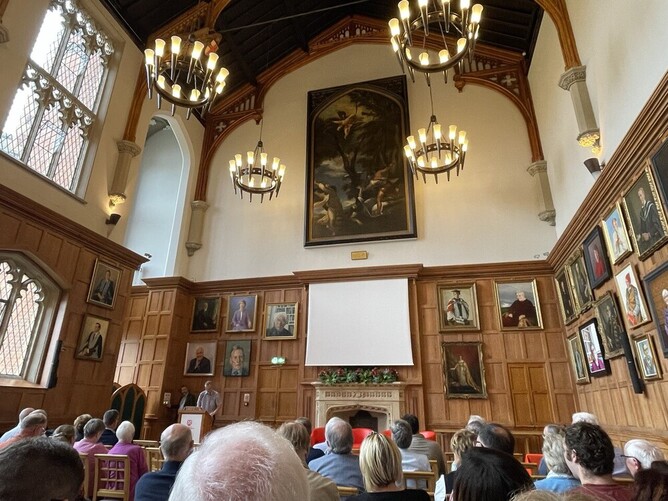It’s 200 years since the Open Brethren movement began. Worth pausing and celebrating.
With the generous funding of Lichfield and Hillview Trusts, Richard Goodwin (Raleigh St Christian Centre and Pathways College faculty) and Ian Payne (Lifezone Church and Pathways College board member) visited Dublin and Belfast on 29–30 August. It was an exciting trip. Richard said, ‘Seeing with my own eyes the context in which the Brethren movement sprang to life—the original buildings, the university buzz, the bustling streets, even the proximity to Oscar Wilde’s own digs! —blew the dust off my imagination. Our beginnings weren’t humdrum and stuffy; they were vibrant and relevant.’ Ian agreed, ‘Those early Brethren were amazing, simple and devoted!’
A highlight was the Dublin walk-about tour to several historic places where the first Brethren groups met from 1825. Photo 2 has Tim Grass showing us the house in Fitzwilliam Square. It was here that Anthony Norris Groves suggested ‘that believers, meeting together as disciples of Christ, were free to break bread together…weekly…’ without the need for a clergyman. Those early Brethren were mostly educated and wealthy, but their earnest simplicity flourished when they moved in 1830 to meet in a public hall in a poorer area of Dublin. The movement spread rapidly across Britain and the globe, especially in the revivals of the 1850s.
Ian, Richard and Hilly.
Tim Grass showing us where it all began.
In Photo 3, are some of the early Brethren people we met. John Nelson Darby became a forceful evangelist. His strongly negative view of the world and the wider church eventually led to the first split in the Brethren and formation of the Exclusive Brethren. Anthony Norris Groves, who had given away all his wealth, remained influential even after departing in 1829 as a missionary to Persia then India—living by faith not salary. His example was followed by George Mueller, who would later set up orphanages in Bristol.
Some of the early Brethren people discussed at the conference.
Taking a bus overnight to Belfast, we joined a morning seminar in Queens University. Dr Ian Burness (of Echoes) enthused about the global impact of the Brethren: 200 years of vigorous missionary enterprise has led to some 3.6 million people in 40,500 congregations who identify as ‘Brethren’ in over 140 countries. Refer to the table below.
‘It was a full-circle moment for me,’ Ian Payne said, ‘to realize that Anthony Norris Groves’ missionary influence in India was represented in the room in Belfast by an Indian Brethren evangelist.’ (Coincidently, he was one of Ian’s SAIACS students!). ‘We could see why Anthony Norris Groves has been called the father of the Open Brethren movement.’
From Dr Burness' seminar slides.
What did Richard and Ian think were lessons for today?
Ian thought we could learn from ‘their adventure of trusting the direct Lordship of Jesus in the local church gathering and daily life.’ He was also struck by the contrast between Darby’s pamphlet entitled ‘Separation from evil God’s principle of unity’ and Groves’ words, ‘the simple principle of union [is] the love of Jesus.’ Even though people may find themselves surrounded by things they disagree with, there’s something healthy in focusing on love for Jesus. The socio-political and religious world of their time was dark, difficult, and divided, but Ian felt ‘Brethren belief in the Lordship of Jesus, the authority of Scripture and the importance of the church was lived out with electrifying simplicity and daring.’
Richard said, ‘I now have a sense that Kiwi Open Brethren are kaitiaki of a legacy that I hope we can continue in 21st-century Aotearoa New Zealand.’ They both are convinced that ‘the Open Brethren heritage is an amazing gift to the worldwide church.’
Ian and Richard hope to make more reflections available soon. Look out for a Pathways More than Theology Podcast. If you want some good reading on Brethren history, see Tim Grass’s new book, Brethren, A Brief Introduction, Glasgow: BAHN, 2025.
The Brethren Movement Worldwide, Key information, Neil Summerton, editor, IBCM: 2023; available online. Click Here.
